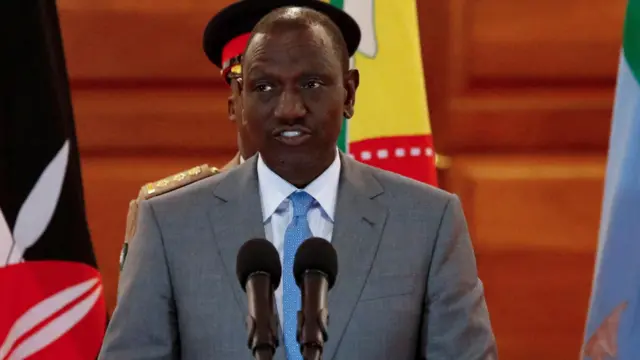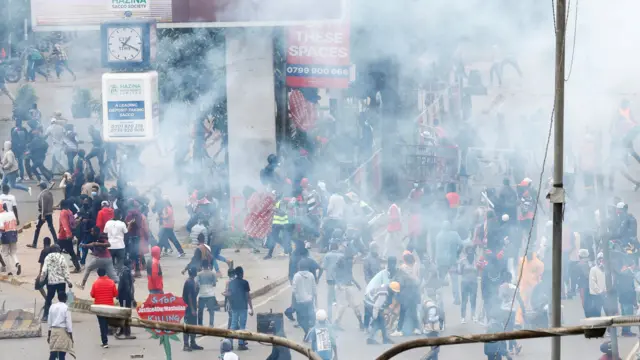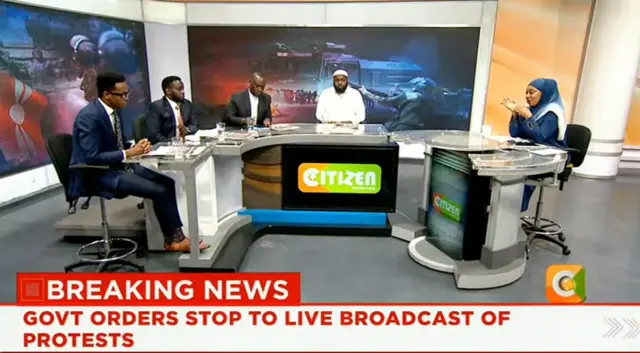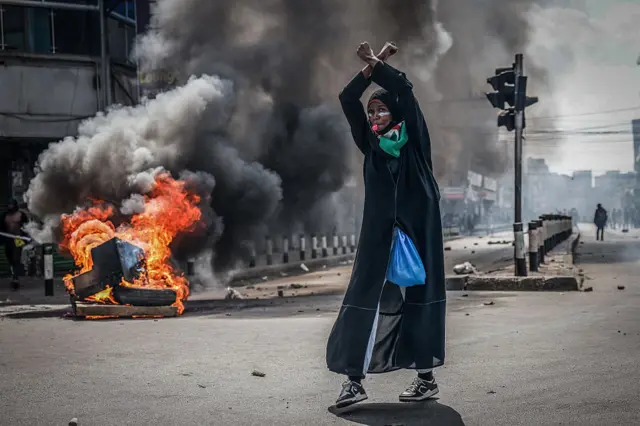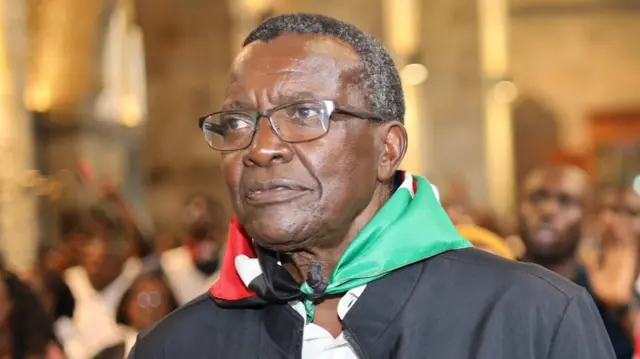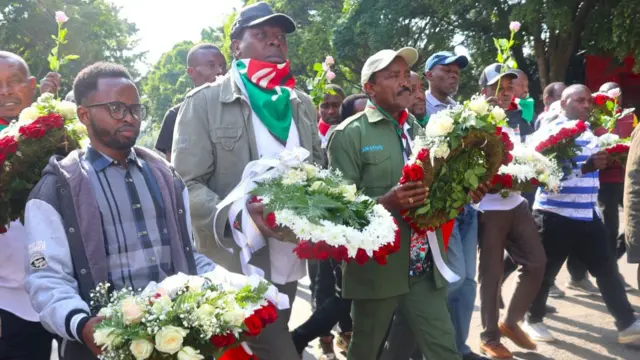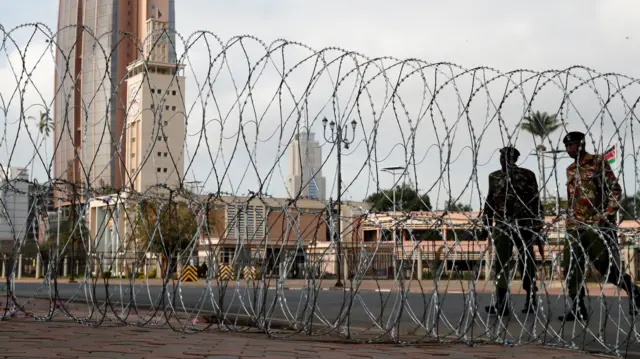Ruto's unity government under pressurepublished at 13:14 BST 25 June
Wycliffe Muia
Reporting from London
President Ruto has incorporated opposition figures to his cabinet in a move to solidify his hold on power amidst increasing criticism of his administration.
But the majority of Kenyans are opposed to the arrangement, according to a recent survey.
In July, the president dismissed nearly his entire cabinet in an attempt to end protests. He unveiled what he called a "broad-based government", giving four posts to key allies of main opposition leader Raila Odinga - including the powerful finance and energy ministries.
Last December, he held a surprise meeting with his rival and predecessor Uhuru Kenyatta, who had backed Odinga in the closely fought 2022 election that Ruto won.
Ruto said he had decided to work with his former rivals to promote national unity as well as "build bridges" and create "more synergy" in his government.
But his presidency plunged into another crisis after he fell out with his deputy Rigathi Gachagua, leading to his impeachment last October. Allies of the two have since been involved in a series of public spats.
Analysts see Ruto's inclusion of the opposition as a strategy to address the unpopularity of his government, especially in the key central region from where Gachagua comes.
